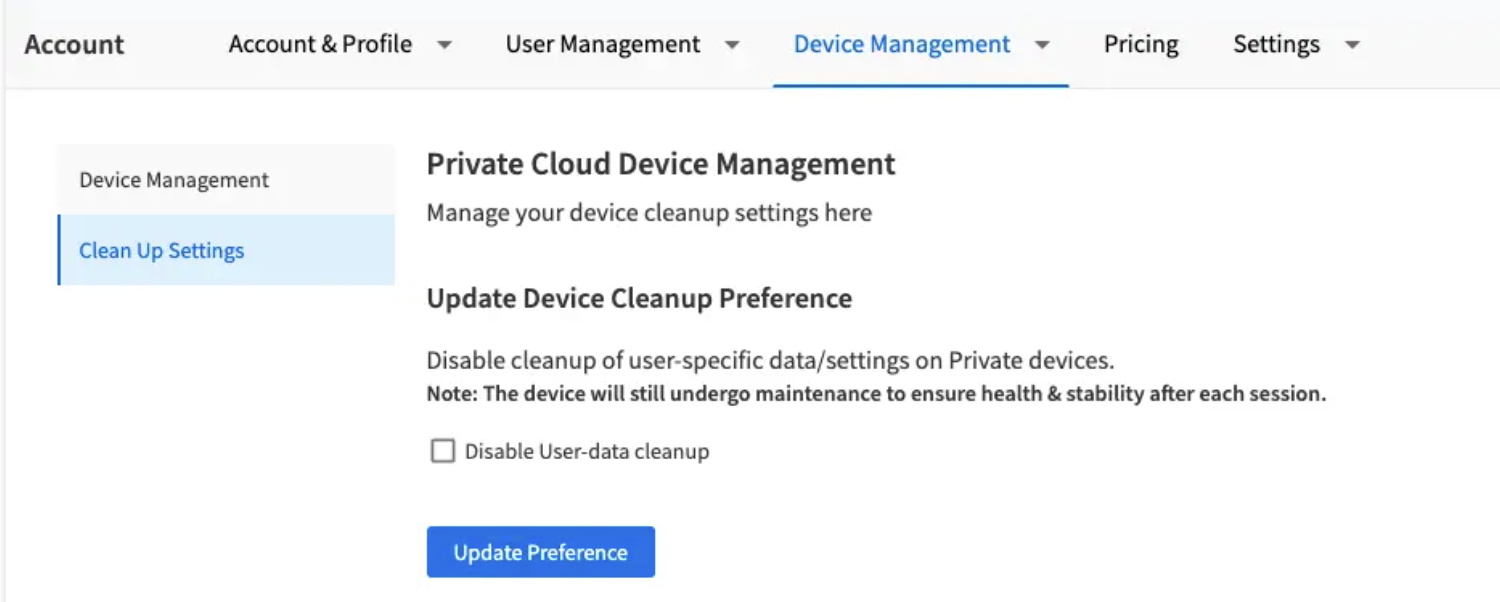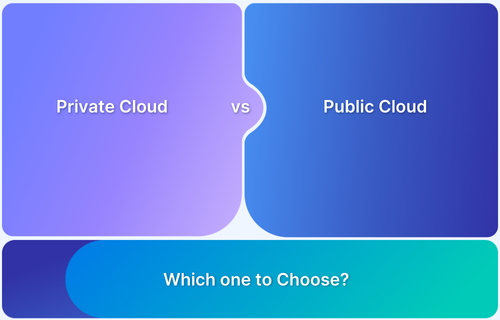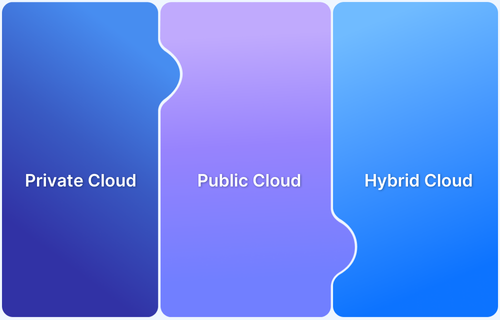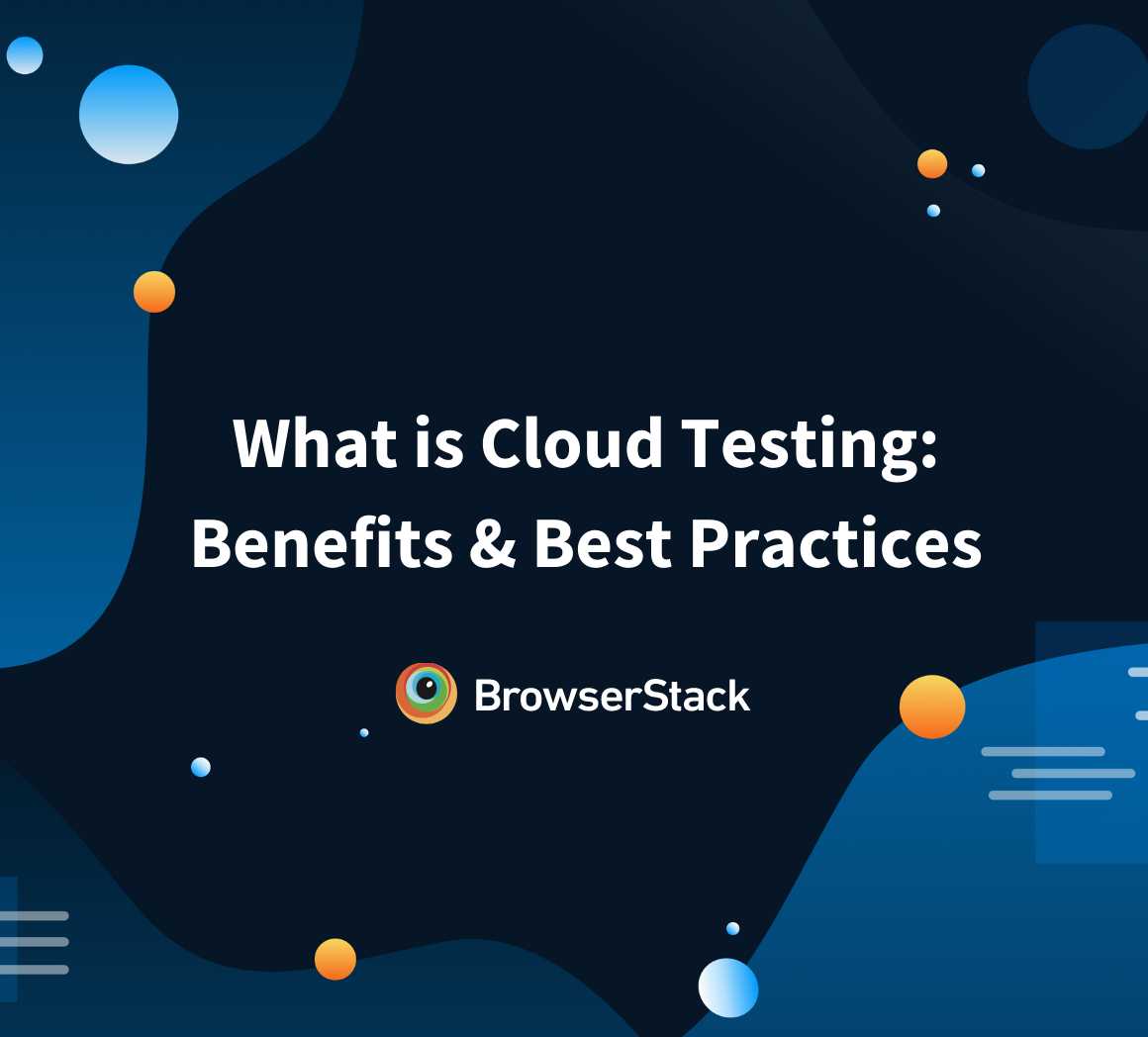Due to the complexities of web and mobile apps, companies often face custom testing needs that go beyond shared infrastructure. Public device clouds may not always meet the unique testing requirements of enterprises, especially when it comes to security, customization, and compliance.
Private device testing offers a safe and assured solution. It grants sole access to a selection of physical devices tailored to your testing needs.
Overview
Types of Private Device Testing:
- On-Premise Infrastructure
- Cloud-Based Infrastructure
Common Use Cases for Private Device Testing:
- App Persistence Testing
- SIM-Based Testing
- Device UDID Management
- iOS Entitlements Verification
- Native Feature Integration
- Security and Compliance Testing
- Dynamic Device Allocation
- Team-Based Access Management
Benefits of Private Device Testing:
- Enhanced Compliance
- Customization & Flexibility
- Guaranteed Device Availability
- Access to Native Features
- Secure
This article explains the details of private device testing and understand why it’s essential for success.
What is Private Device Cloud?
A Private Device Cloud offers a dedicated, secure, customized, and controlled environment for your mobile testing needs. It is a cloud infrastructure with exclusive access to real Android and iOS devices. Moreover, users can simply use their desktop browser to connect and test their applications remotely.
Private device cloud is particularly useful for enterprises that require full control over their test lab infrastructure.
Read More: What are Public, Private, and Hybrid Clouds
Why move to a Private Cloud?
In-house device labs are costly and hard to maintain. Teams deal with hardware maintenance, OS updates, space issues, and limited scalability.
Many teams switch to cloud-based device platforms to streamline testing. These offer instant access to real devices, faster test execution, and no maintenance hassle.
But public cloud solutions don’t work for everyone. Teams with strict security needs, hardware integrations, or custom environments often find them limiting.
A private device cloud offers a better fit in such cases. It gives you full control over dedicated devices, better security, and the flexibility to test in a setup tailored to your needs without the overhead of managing everything manually.
Types of Private Device Testing
While there aren’t explicitly defined types, private device testing can be broadly categorized based on the infrastructure used:
- On-Premise Infrastructure: In this configuration, devices are housed in the organization’s premises. It ensures physical access to devices directly and gives the organization more control over hardware and security. However, it entails huge investment in hardware and upkeep.
- Cloud-Based Infrastructure: Cloud-based private device cloud testing uses remote servers as hosts for devices. It is flexible and scalable, enabling teams to support large devices without requiring extensive physical infrastructure.
Public Cloud vs Private Cloud for Testing
Public and private clouds offer distinct approaches to cloud computing. A public cloud provides shared IT resources such as servers and storage over the internet via a third-party provider. It offers cost-effectiveness and scalability.
In contrast, a private cloud is a cloud environment dedicated to a single enterprise. It provides greater security, control, and customization based on the enterprise’s testing needs.
Choosing between public and private clouds for device testing depends on factors like security, control, and cost. Below is a comparison to highlight key differences:
| Aspect | Public Cloud Testing | Private Cloud Testing |
|---|---|---|
| Ownership | Managed by third-party providers; resources are shared among multiple organizations. | Owned and operated by a third-party provider. Offers exclusive resources for a single enterprise |
| Security | Operates in a shared environment, which may pose higher risks of data breaches. | Provides enhanced security due to dedicated infrastructure, making it suitable for sensitive data and compliance requirements. |
| Cost Structure | Offers a pay-as-you-go model with lower upfront costs, making it accessible for startups and small to medium businesses. | Involves higher initial investment but can be more cost-effective in the long term for organizations with consistent, heavy workloads. |
| Scalability | Highly scalable with the immediate availability of resources, thereby enabling businesses to configure resources in line with their current needs. | The extent of the scalability rests on the company’s internal infrastructure and may as well need extra spending for increasing capacity. |
| Customization | Limited customization options as services are standardized across all clients. | Offers high customization to meet specific business and testing requirements. |
| Performance | Performance can be affected by the multi-tenant nature of public clouds, especially during peak usage times. | Provides consistent performance due to dedicated resources, ensuring reliability for critical applications. |
| Compliance | May face challenges in meeting stringent industry compliance and regulatory requirements due to its shared nature. | Easier to comply with industry regulations and data sovereignty laws, as the infrastructure is controlled by the organization. |
| Maintenance | Maintenance and updates are handled by the cloud provider, reducing the operational burden on the organization. | Requires in-house management and maintenance, necessitating a skilled IT team. |
| Best Suited For | Startups, small to medium businesses, and organizations with fluctuating testing needs that benefit from flexible, scalable resources. | Secure, compliant, and scalable environments ideal for handling sensitive data in highly regulated industries.
|
Common Use Cases for Private Device Testing
Private device testing consists of using separate physical devices dedicated solely to the management of an organization to execute detailed testing of software applications. It guarantees a controlled and secure environment for different critical test cases:
- App Persistence Testing: Ideal for checking if user data and settings are retained across sessions.
- SIM-Based Testing: Essential when validating app behavior across different SIM cards and networks.
- Device UDID Management: Useful for targeting device-specific bugs or features tied to unique identifiers.
- iOS Entitlements Verification: Used to confirm proper access to specific iOS services like push notifications, HealthKit, or iCloud.
- Native Feature Integration: Best suited for testing interactions with device features like camera, contacts, or settings.
- Security and Compliance Testing: Critical for apps handling sensitive data or needing to meet industry regulations.
- Dynamic Device Allocation: Great for scaling test capacity by assigning devices on-demand based on workload.
- Team-Based Access Management: Helps organize and control access to devices across distributed or large teams.
Benefits of Private Device Testing
Engaging in private device testing offers several advantages:
- Enhanced Compliance: Maintains strict data control, minimizes external threats, and ensures adherence to industry regulations in a secure, auditable environment.
- Customization & Flexibility: Allows tailored testing environments, non-catalog device additions, and pre-configured apps to reduce repetitive setup time.
- Guaranteed Device Availability: With devices reserved exclusively, there are no delays in the queue for testing sessions, allowing developers to plan their tests efficiently and with full confidence.
- Access to Native Features: Enables to test iOS entitlements and facilitates testing native device features.
- Secure: Performance and security are also ensured within corps response beyond company-configured firewalls in accordance with internal cloud security policy.
When to use a Private Device Cloud for Testing?
Consider using a private device cloud when you need advanced features, flexibility, consistent access and control, and strict compliance or when you prefer not to use a public pool of devices. Here is a list of scenarios when to use private device cloud for your testing:
- Security & Compliance: For industries like finance or healthcare where data privacy and regulatory adherence are critical.
- Dedicated Resources: When consistent device availability is needed to reduce queue times and increase testing speed.
- Customization Needs: To configure devices with specific OS versions, apps, or network settings unique to your testing requirements.
- Regulatory Requirements: To maintain full oversight and traceability in testing workflows, complying with industry standards.
- Large-Scale & Continuous Testing: When running tests in parallel across multiple devices without the constraints of shared environments.
Factors to consider for Private Device Testing
When establishing a private device testing environment, consider the following:
- Device Selection: Choose devices that match the target audience’s usage (OS, hardware, screen size).
- Security & Compliance: Implement strong data protection measures and meet regulatory standards.
- Resource Allocation: Ensure dedicated devices to minimize test delays and optimize efficiency.
- Customization: Configure devices/software and customize settings to reflect real-world usage scenarios.
- Scalability: Plan for accommodating the growing testing needs with a flexible, scalable infrastructure.
Why choose BrowserStack for Private Device Testing?
BrowserStack is an all-in-one testing platform that offers multiple tools for varied testing needs.
BrowserStack’s Private Device Cloud ensures a secure, dedicated, and high-performance environment for private device testing. With isolated device access, teams can ensure data security, compliance, and customization.
Users maintain complete control over the private device cleanup after each use. While a default cleanup configuration is provided, our secure private infrastructure allows teams to disable it when needed. This flexibility enables data retention between sessions, streamlining testing workflows without compromising security or performance.
BrowserStack’s Private Device Cloud enables custom device setups, iOS entitlements, and access to native features, and offers enhanced efficiency.
Key Features of BrowserStack Private Cloud
BrowserStack’s Private Cloud offers a robust suite of features designed to enhance your private device testing experience. Key features include:
- App Persistence Testing: Ensure user data, preferences, and session states are retained across app launches for a seamless user experience.
- SIM-Based Testing: Test app functionality across various SIM cards and network conditions to validate connectivity, messaging, and region-specific behavior.
- Custom MDM: Manage devices with custom Mobile Device Management (MDM) solutions for enhanced control.
- Enables Wi-Fi: Simulate various network conditions by enabling Wi-Fi settings on devices.
- Offline Mode Support: Test applications in an isolated manner without using an internet connection. Perfect for special cases when network conditions ought to be isolated.
- Supports Automation Testing: The Private Cloud from BrowserStack supports automation frameworks like Appium, Espresso, XCUITest, and many others, making it easier to integrate automated tests into your workflows.
- Logs, Performance Metrics, and Crash Reports: In-depth insights into app performance, errors, and crashes for faster debugging and optimization.
- Integrating with CI/CD Pipelines: Integrate seamlessly with your CI/CD systems to automate the testing and deployment process.
- Device-Level Cleanup: Users have complete control over device-level cleanup. By default, the system can be configured to clean the device after each test session. However, due to the highly secure private cloud, users can choose to disable this feature, retaining device data for faster and more iterative testing.
- Dedicated Customer Engineer (CE): Access to a dedicated CE who assists in the timely resolution of any technical issues for users in BrowserStack Enterprise Plan.
- Exclusive Device Availability: Get exclusive access to the devices required for your testing needs, such as Catalogue, Non-Catalogue, and Custom devices.
- Catalog Devices: These are the regular device-OS combinations that are inside the scope of the Browserstack device catalog, which includes common mobile devices and smart TVs.
- Non-Catalog Devices: You could request these devices from BrowserStack for unique testing situations that are not normally available in the BrowserStack catalog.
- Custom Devices: These are devices or configurations designed for your special testing needs but are outside standard or non-catalog offerings.
BrowserStack’s Private Cloud offering is available for which of its Core Products?
BrowserStack’s Private Cloud offering is available for the following core products, enhancing testing flexibility and control across different platforms:
- BrowserStack Live: This is for manual testing on real devices across mobile and desktop browsers.
- Automate: Used for running automated tests on real devices and supports frameworks like Appium, Selenium, etc.
- App Live: Provides live testing for mobile apps on real devices.
- App Automate: App Automate is a tool for mobile app test automation. It integrates with major mobile automation frameworks.
BrowserStack has two flexible plans under its Private C loud offering to meet the different needs of organizations:
- Enterprise Private Cloud – Standard: This is a flexible plan considering an infrastructure of private cloud attached for limited support to teams who need basic access and configuration options.
- Enterprise Private Cloud – Premium: This plan has all the additional customizable options but better support and excellent resource allocation. This makes this plan appropriate for teams requiring a higher level of service and personalization.
Conclusion
A Private Device Cloud gives teams dedicated access to real devices so they can test faster, stay compliant, and avoid the delays of shared infrastructure. It’s a smarter way to scale testing while keeping full control over data and performance.
BrowserStack’s Private Cloud offers secure, dedicated access to real devices with complete control, compliance, and customization. With a range of powerful features and flexible cleanup options, it helps meet every unique testing needs of organizations.







